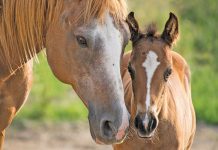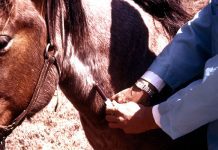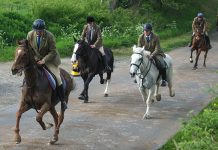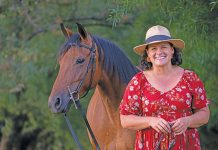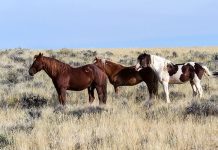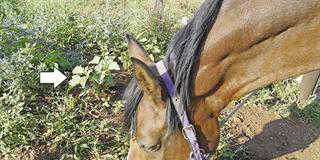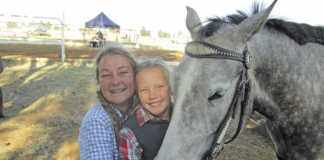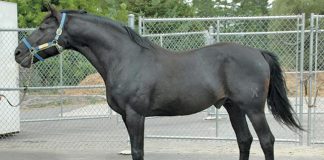Wild horses are living and multiplying out on the range all over the world, including South Africa. A farmer who has many hectares of grazing and doesn’t want to buy in concentrate for his breeding herd may well wonder why horses can’t just live off the veld.
This question is usually asked by those breeding horses suitable for working cattle, like Nooitgedachts, Boerperde, Quarter Horses and even Arabians. It’s also asked by those who use horses for tourism, where the horse is a business asset – and feeding concentrate requires extra work, as well as a large monthly outlay.
Type of grazing
At any rate, the answer is that horses can ‘just live off the veld’. However, the type of grazing is important. In the Karoo, for example, there’s very little rain but the soil is rich in minerals, particularly calcium, and there’s not a great deal of seasonal variation in the protein and energy levels in Karoo bushes and sweet grasses.
The tall sourveld grasses on the Highveld, in contrast, have high protein levels during the growing season, from October to January, but once the grasses flower they become fibrous. By July they’re almost indigestible. Soil here is also often deficient in phosphate and calcium. In winter, working horses must have access to an energy source such as pastures or good quality hay. Breeding horses also need protein.
A herd of mature geldings from a breed known to be good ‘doers’ would probably cope on veld alone in most parts of South Africa. They would cope especially well in the Northern and Western Cape, KwaZulu-Natal Midlands or Free State, because the soil and grass there are richer in nutrients and minerals.
However, mares with foals could become thin and the foals stunted on the same grazing if no supplements are fed, as metabolic requirements for breeding are much higher. There’s also a relationship between the amount of work done and the concentrate requirement.
More energy
Racehorses, showjumpers and eventers require a great deal more available energy in their food. Fibrous grass takes too long to metabolise and is only needed in the diet as roughage to help with digestion. These horses need about 4kg to 6kg of concentrate and only about 3kg of grass a day. As they are worked hard and fast, they don’t need to amble around in a large paddock to keep fit, so can go out to graze for as little as two hours a day after exercise and then stay in a stable.
The amount of fodder consumed by a horse on the veld is slightly more than a cow. Furthermore, horses, like donkeys and zebra, tend to graze the veld shorter, making it unsuitable for cattle. This is why it’s often better to keep farm horses on pastures and feed them concentrates.
Supplements
Supplements, such as licks, are a feasible alternative for horses on large farms, such as those in Namibia, where warmbloods are raised. Unfortunately, good horse licks aren’t available commercially in South Africa. Most of these contain far too much molasses and a small herd can demolish a lick in a matter of hours. If you want to maintain horses on grazing, speak to a vet about how to mix a salt-mineral-energy lick for your area, after taking soil and grass samples for analysis, and put this loose into half-tyres in the veld.
Contact Dr Mac at [email protected]. Please state ‘Horse talk’ in the subject line of your email.


